
OR
Nepal-India ink long-term power trade agreement facilitating export of 10,000 MW of Nepal’s electricity to India
Published On: January 5, 2024 07:30 AM NPT By: RAJESH KHANAL
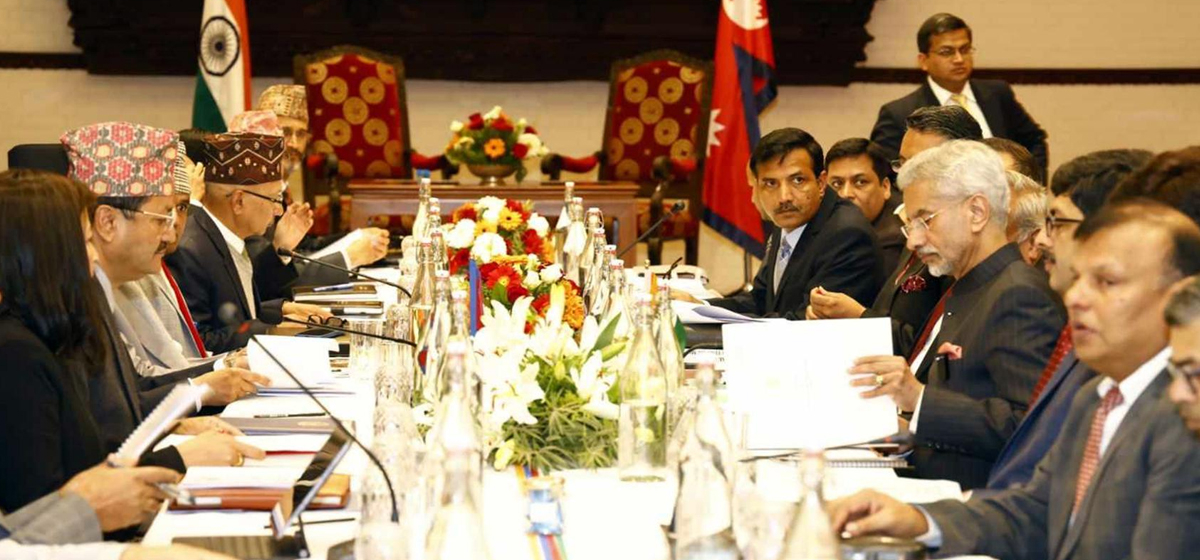
Experts of the energy sector term the agreement as a major breakthrough to promote the market for electricity produced in Nepal
KATHMANDU, Jan 5: Nepal and India have signed a long-term Power Trade Agreement (PTA), which is expected to ensure a market for the electricity produced in the hydropower-rich Himalayan nation.
As per the agreement signed during the Joint Commission (JC) meeting between the two countries on Thursday, India will be purchasing 10,000 MW of electricity from Nepal in the next 10 years. Secretary at the Ministry of Energy, Water Resources and Irrigation, Gopal Sigdel and India's Energy Secretary Pankaj Agrawal inked the agreement paper on behalf of their respective governments. The agreement was signed during the two-day visit of India's External Affairs Minister Subrahmanyam Jaishankar, which commenced on Thursday.
The government officials and experts of the energy sector have termed the agreement as a major breakthrough to promote the market for electricity produced in Nepal. Energy Secretary Sigdel said the bilateral energy trade agreement will help attract foreign direct investment in electricity production. “It is a landmark step to ensure a favorable investment environment to attract foreign investors in the segment,” he said.
The bilateral understanding on electricity export was reached during Prime Minister Pushpa Kamal Dahal's visit to India from May 31 to June 3, 2023. During the visit, Indian Prime Minister Narendra Modi had expressed India's commitment to long-term electricity purchase from Nepal. The Federal Council of Ministers of India has already endorsed the Memorandum of Understanding (MoU) in this regard.
The bilateral agreement has now formalized India’s commitment to purchase a notable amount of electricity from Nepal. It is expected to benefit both the countries at a time when Nepal is focusing on producing electricity at its optimal capacity whereas India has targeted to achieve net zero emissions by 2070.
Kulman Ghising, managing director of the Nepal Electricity Authority (NEA), said the agreement has assured the market for the locally produced electricity. “Till now, investors used to hesitate to pour their investment citing the unsecure electricity market of Nepal. Now, this agreement has wiped out the uncertainty and this will definitely help invite more investment in the segment from both foreign and domestic investors,” said Ghising.
Nepal is now producing more than 2,800 MW of electricity. As per the records with the NEA, an additional 119.11 MW of electricity was added to the national grid in the past six months while the authority has signed power purchase agreements with the private sector power plants having a cumulative capacity of 1,476.308 MW of electricity that are currently under construction.
Currently, the domestic demand stands at around 1,500 MW whereas India is importing only around 600 MW of surplus electricity. In this context, more than 700 MW of electricity produced during peak season is going into wastage.
Ghising said the agreement has assured the market for the produced electricity as well as the amount to be produced by under construction projects. “However, Nepal will have to produce a minimum of 20,000-25,000 MW of electricity in order to reap maximum benefit from both the domestic consumption and cross border electricity trade.”
As per the government officials, following this agreement, various government and private entities in India will be allowed to engage in power trade with Nepal through short-term, medium-term, and long-term contracts. Nepal’s private sector can also participate in the import and export of electricity after completing the necessary procedures.
Kumar Pandey, former vice-president of the Independent Power Producers’ Association, Nepal (IPPAN), said the agreement will surely convey a positive message to the prospective investors. “It has created a positive environment to sell the locally produced electricity in the Indian market,” Pandey added.
Along with the accord for the cross-border electricity trade, the seventh meeting of the Joint Commission (JC) of Foreign Ministers of Nepal and India signed four agreements and memorandum of understanding (MoUs) on economic relations, connectivity, trade and transport, energy and water resources, education, culture, and political issues between the two countries.
The two neighboring countries agreed on implementation of High Impact Community Development Projects, Long Term Power Trade Cooperation in Renewable Energy Development, Munal Satellite and Handover of 5th tranche of post-Jajarkot earthquake relief supply.
In addition, the foreign ministers of the two countries also jointly inaugurated three cross-border transmission lines during the JC meeting. These include Raxaul-Parwanipur, Kushaha-Kataiya and New Nauchuna-Manaiya cross-border transmission lines.
Meanwhile, the NEA and NTPC Limited, an undertaking of the Government of India also signed a MoU for cooperation in the renewable energy development.
The government has formulated an energy development strategy targeting to produce a total of 28,000 MW of electricity in the next 12 years. Out of the produced amount, 13,000 MW will be utilized for domestic purposes and the remaining 12,000 MW will be exported to neighboring countries including India.
You May Like This
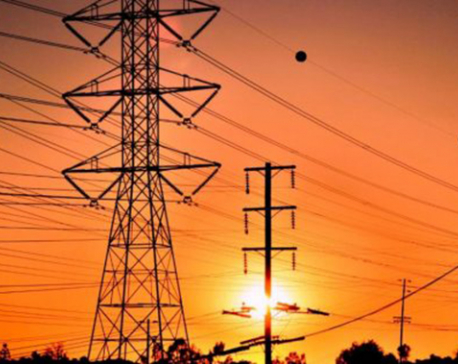
Nepal-India finalize modalities of proposed cross-border transmission lines
KATHMANDU, Jan 8: Nepal and India have agreed on the modalities of the proposed cross-border transmission lines with capacity of... Read More...
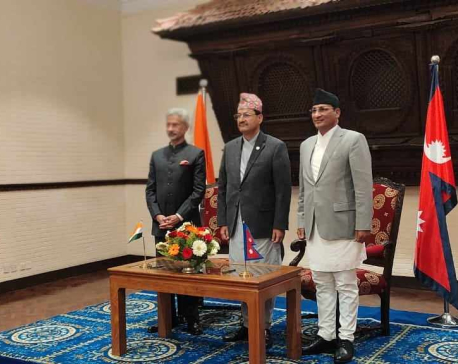
New Nepal-India Agreement allows India to directly fund projects up to Rs 200 million
KATHMANDU, Jan 5: Despite public concerns and controversy, Nepal and India have reached an agreement to pave the way for... Read More...
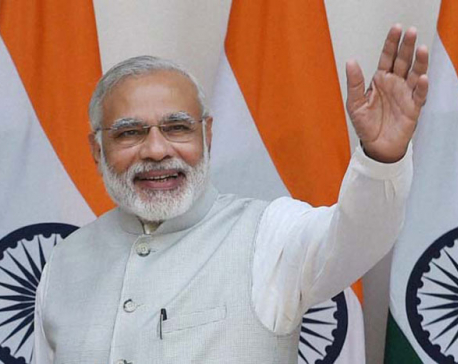
Nepal good friend of India: Deuba, India ready to support Nepal's development: Modi
NEW DELHI, Aug 24: Prime Minister Sher Bahadur Deuba, who is currently on a five-day state visit of India, said... Read More...


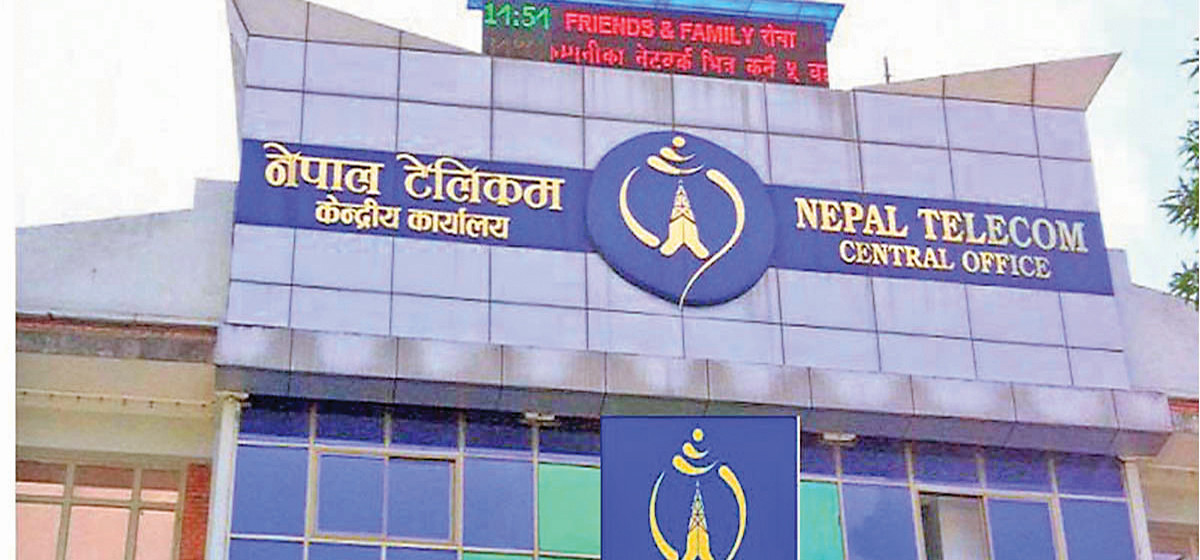

-1200x560_20240510154715.jpg)
Just In
- Hyundai launches first 'made in Nepal' vehicle assembly plant in Nawalparasi
- Two arrested with Rs 9.8 million of hundi cash after car chase by police from Singha Durbar
- SC refuses to issue interim order in petition against Koshi CM Karki
- Patan High Court upholds district court’s order, refuses to release four people arrested in connection with cryptocurrency case
- EU to help Nepal bring investment
- Newly-appointed Koshi CM Karki to seek vote of confidence on May 13
- NC continues protest, next HoR meeting scheduled for May 14
- Province Chief Khapung summons budget session



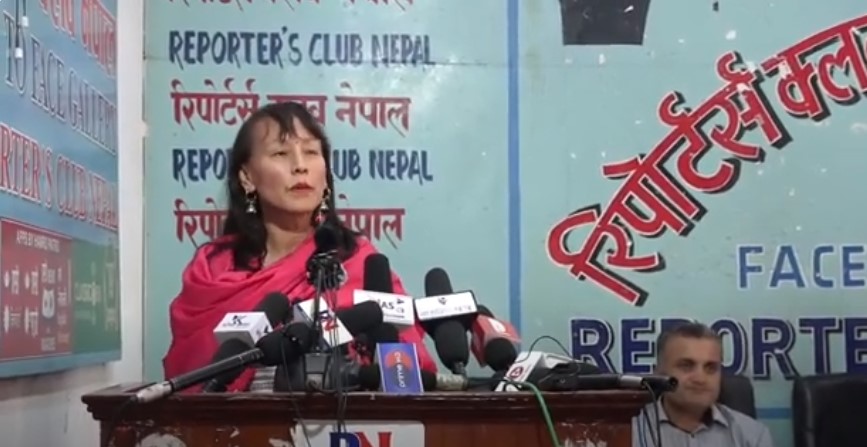

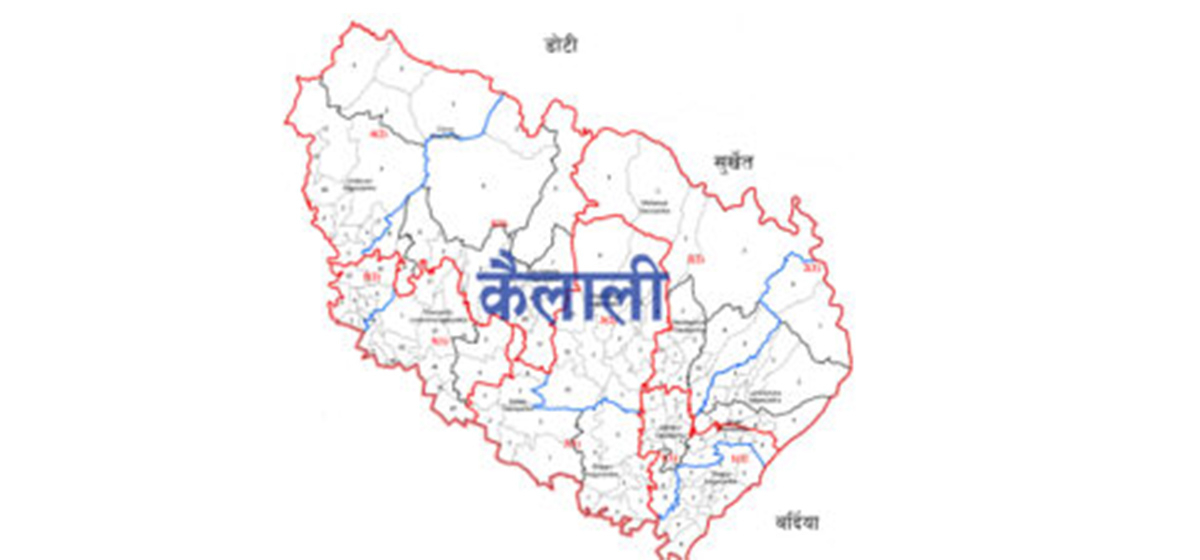

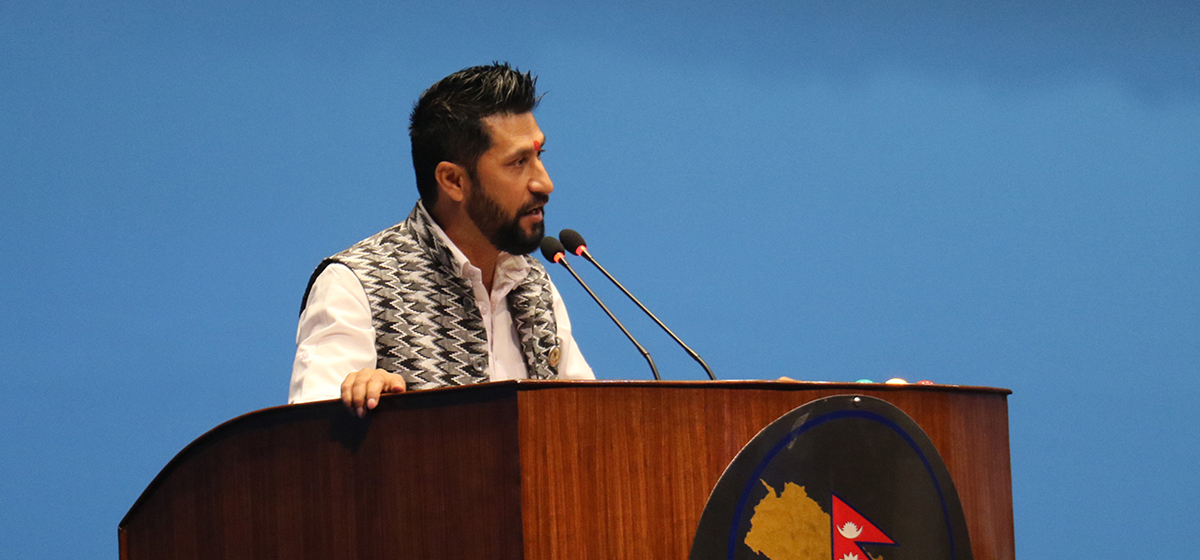
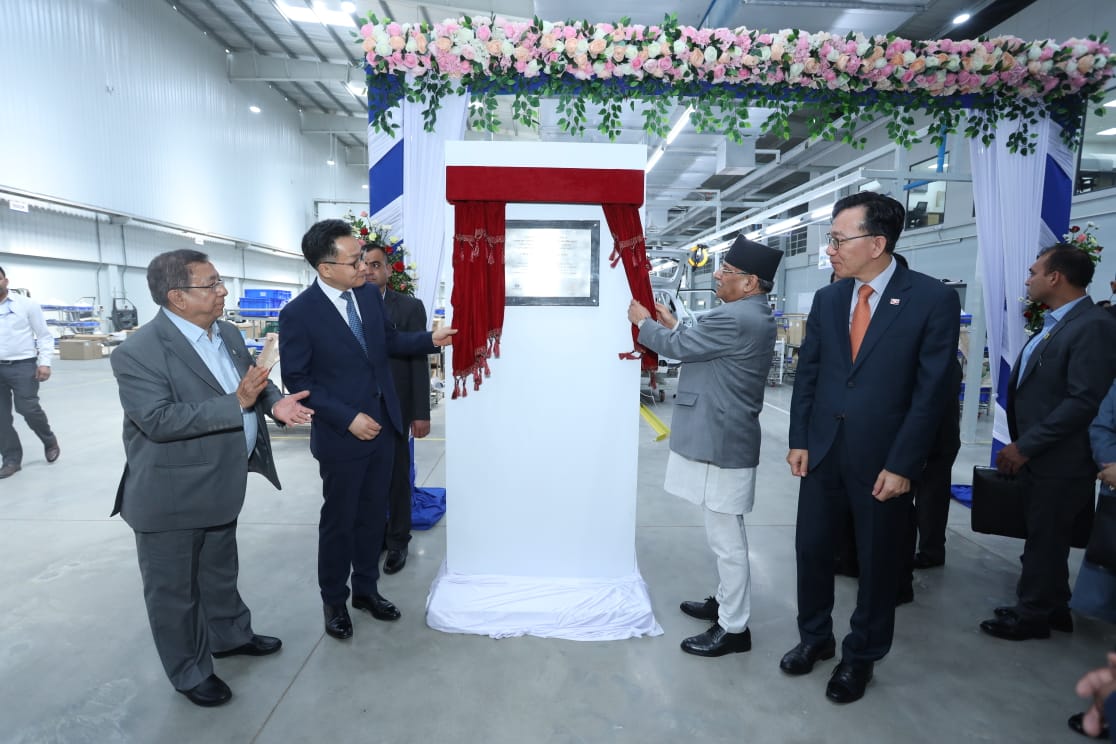

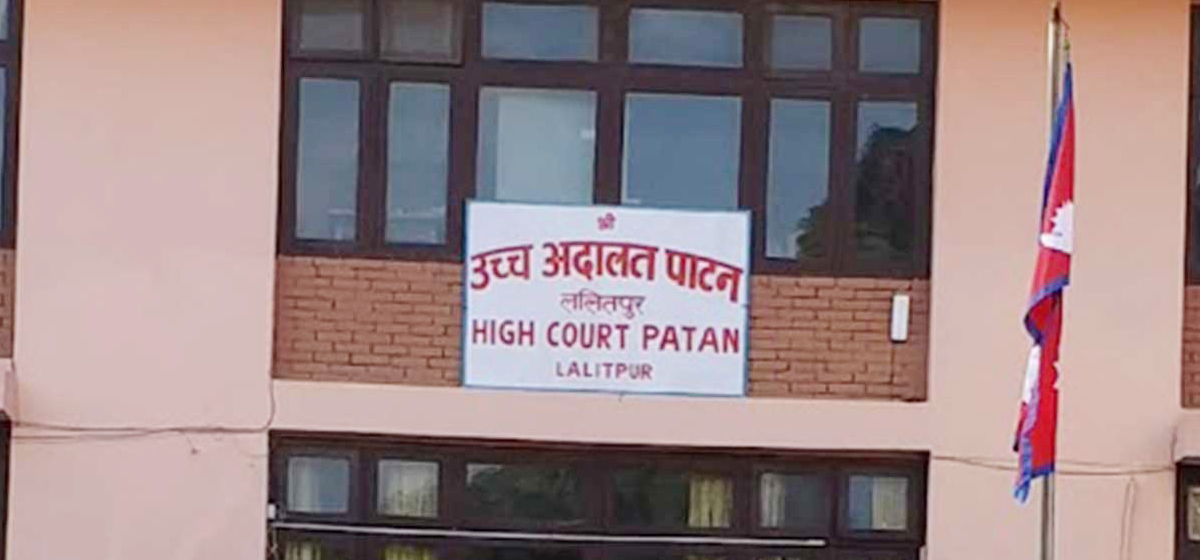
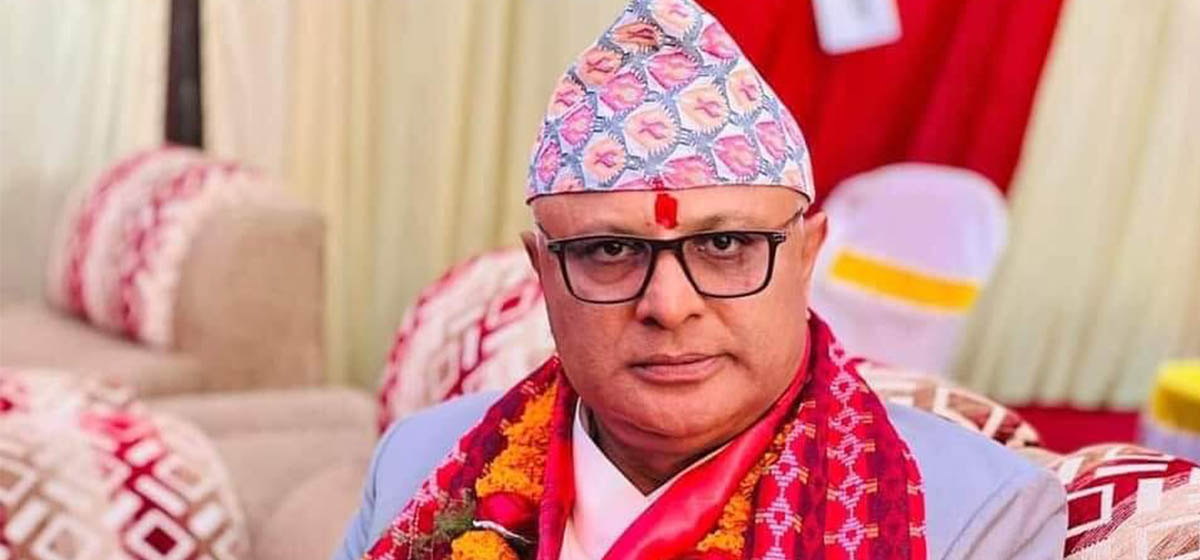
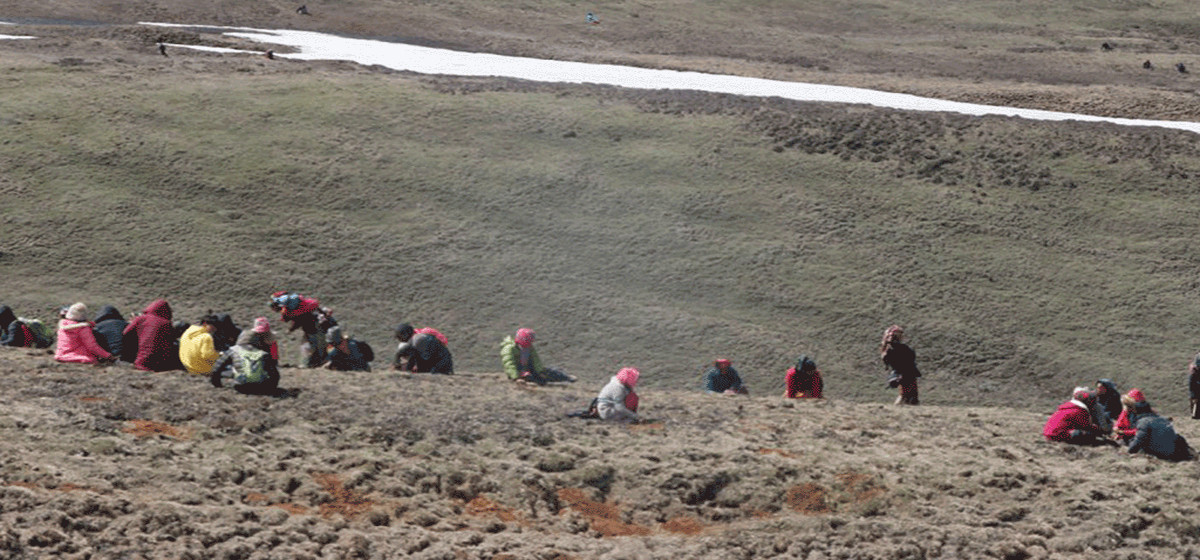

Leave A Comment